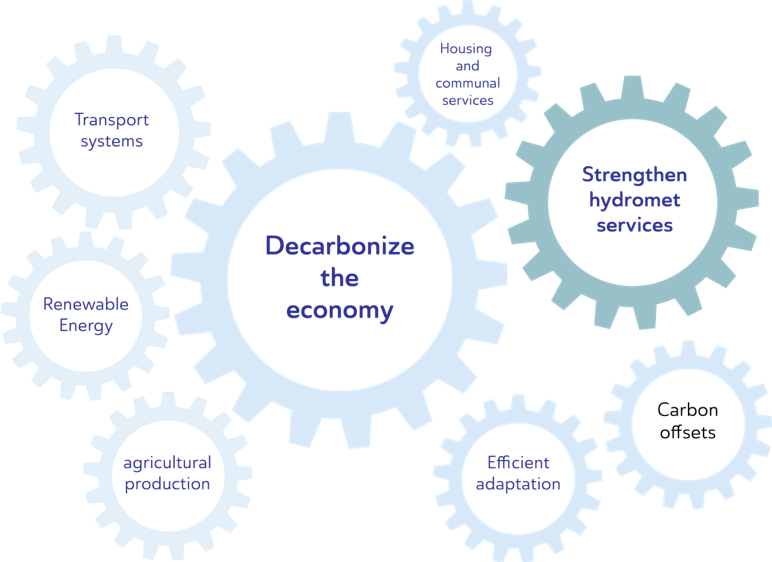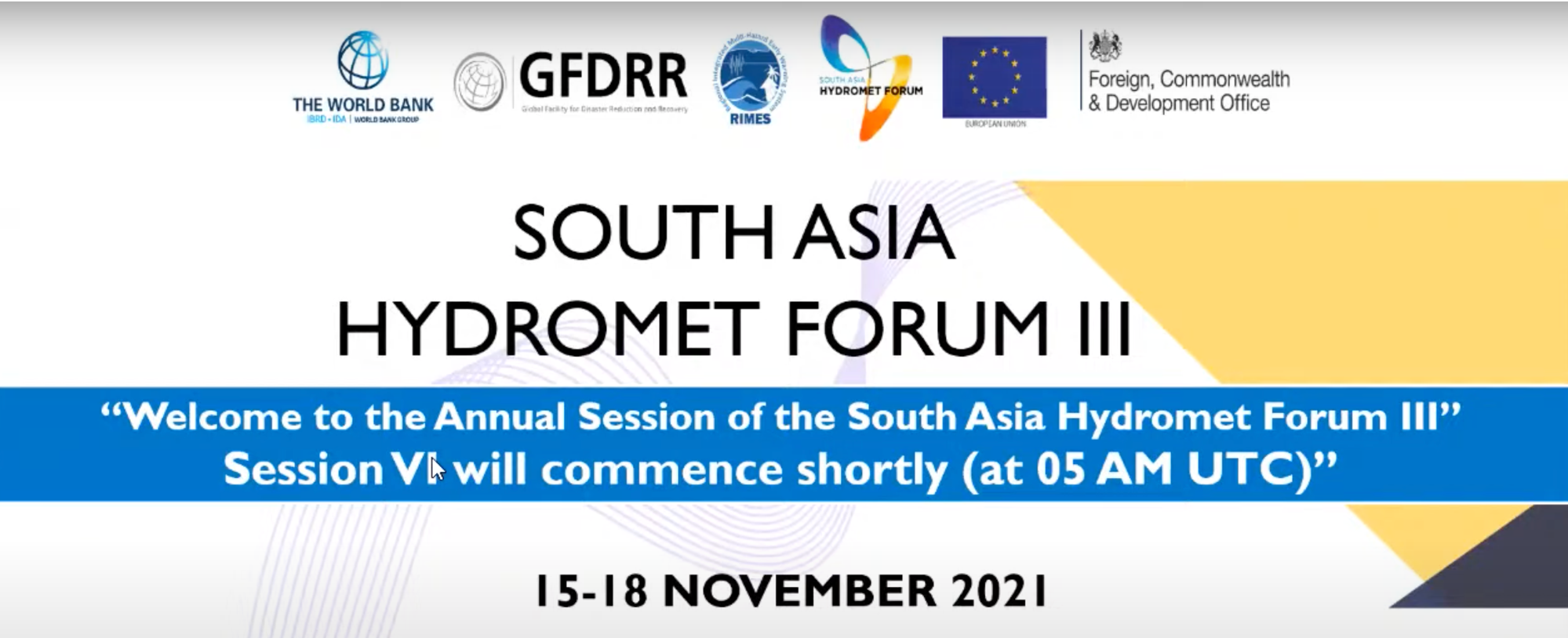
| Issue 11 - November 2021 |
The WeatherPodTwo new episodes are available. Click the images below to hear the latest conversations... Episode 15: Building urban resillience to compound extreme weather events and risksHosts Alan Thorpe & David Rogers welcome Nina Ridder (University of New South Wales) and Faith Taylor (King’s College London) into the studio to discuss the huge impact extreme weather & climate events – especially compound events, such as heatwaves followed by heavy rainfall – are having on urban areas and human settlements. This is the second episode of The WeatherPod produced in collaboration with the Young Earth System Scientists (YESS) Community.
Episode 16: Economics of Weather InformationIn this episode, Thomas Frei (Research and Consulting) meets the hosts David Rogers and Alan Thorpe to explore the economics of weather information, the increasing sensitivity of business and society to the weather, and the evolving roles of the public, private and academic sectors in the global weather enterprise.
Find more episodes of The WeatherPod on the GWE Forum >> The WeatherPod can also be found on ACAST and on Apple Podcasts.
GWE Forum ActivitiesA new series of Roundtables on the social and economic value of weather information in weather- and climate-sensitive sectorsOver the course of five Roundtable discussions in 2022, the GWE Forum aims to highlight how hydromet services address today’s societal priorities - decarbonization, sustainable growth, and strengthening resilience to natural hazards. The discussions will focus on:
Each Roundtable aims to stimulate discussion of new ideas - amongst panellists during the Roundtable and post-event via interactions with the audience. The outcomes will include action points to improve the use of (existing and new) hydromet information for economic development. We are seeking balanced input from a technology and a development focus, including success stories in both developing and developed countries. This series will start in January 2022. We look forward to your suggestions regarding the planning for the Roundtables, and your participation in the discussion! Please send your input here to the GWE Forum coordinating team.
Find the recordings of the previous GWE Forum Roundtables >> Find GWE Forum publications, including Technical Notes and Reports, addressing the related issues >>
Other GWE Forum activitiesSouth Asia Hydromet Forum IIIFind the recordings of the SAHF III here >> The South Asia Hydro-met Forum (SAHF) is a regional initiative, supported by the World Bank, UK FCDO, GFDRR and other partners; that provides capacity building and training activities to support National Meteorological and Hydrological Services (NMHSs) to generate and transform climate data into reliable information that are critical in saving lives and assets and strengthening the resilience of communities in South Asia. The third annual South Asia Hydromet Forum (SAHF III) took place virtually between 15 and 18th November 2021. Discussions focused on the key elements of the hydromet value chain from the services needed by beneficiaries to the underlying capabilities required to provide these services. The improvement in the quality and utility of hydromet services is evident from the increase in the application of forecasts for decision-making by farmers in India in recent years, which has had direct economic benefit. Similarly forecast-based actions taken by aid agencies and individuals has demonstrable social benefit in preventing hazards from becoming disasters in Bangladesh. Working together, the national meteorological and hydrological services of South Asia are accelerating the sharing of knowledge and knowhow on impact-based forecasting, numerical prediction, and the operation of observational networks to develop collective solutions to the service delivery challenges. While national investments are essential, it is increasingly recognized that shared computing resources, observational networks and technical skills would provide a cost-effective means to exploit the best science and technology and enable all countries in the region to benefit. A recent World Bank study has shown that such an approach would also have the potential to significantly increase the value of direct investments. Harnessing innovations and enhancing effectiveness of operations and maintenance in observing systems was discussed during a joint session organized by the GWEF and SAHF. Among the topics examined was the role of the public and private sectors. Although nascent, several countries are exploring new business models that increase the role of the private sector to optimize the operation of observing networks.
Contacting the GWE Forum: The GWE Forum can be contacted here. Please enter 'unsubscribe' in the subect line if you do not wish to receive the newsletter any more.
|
||




